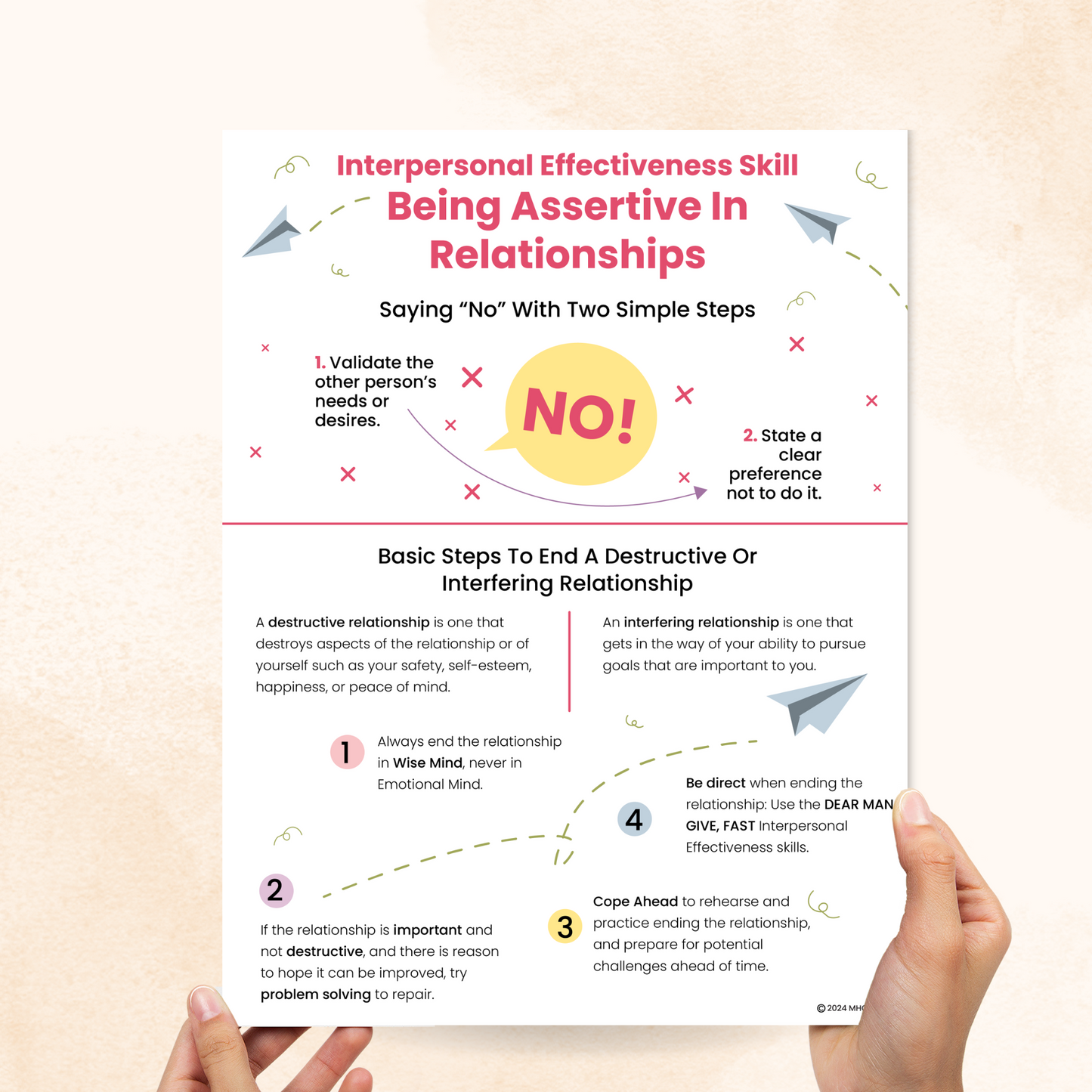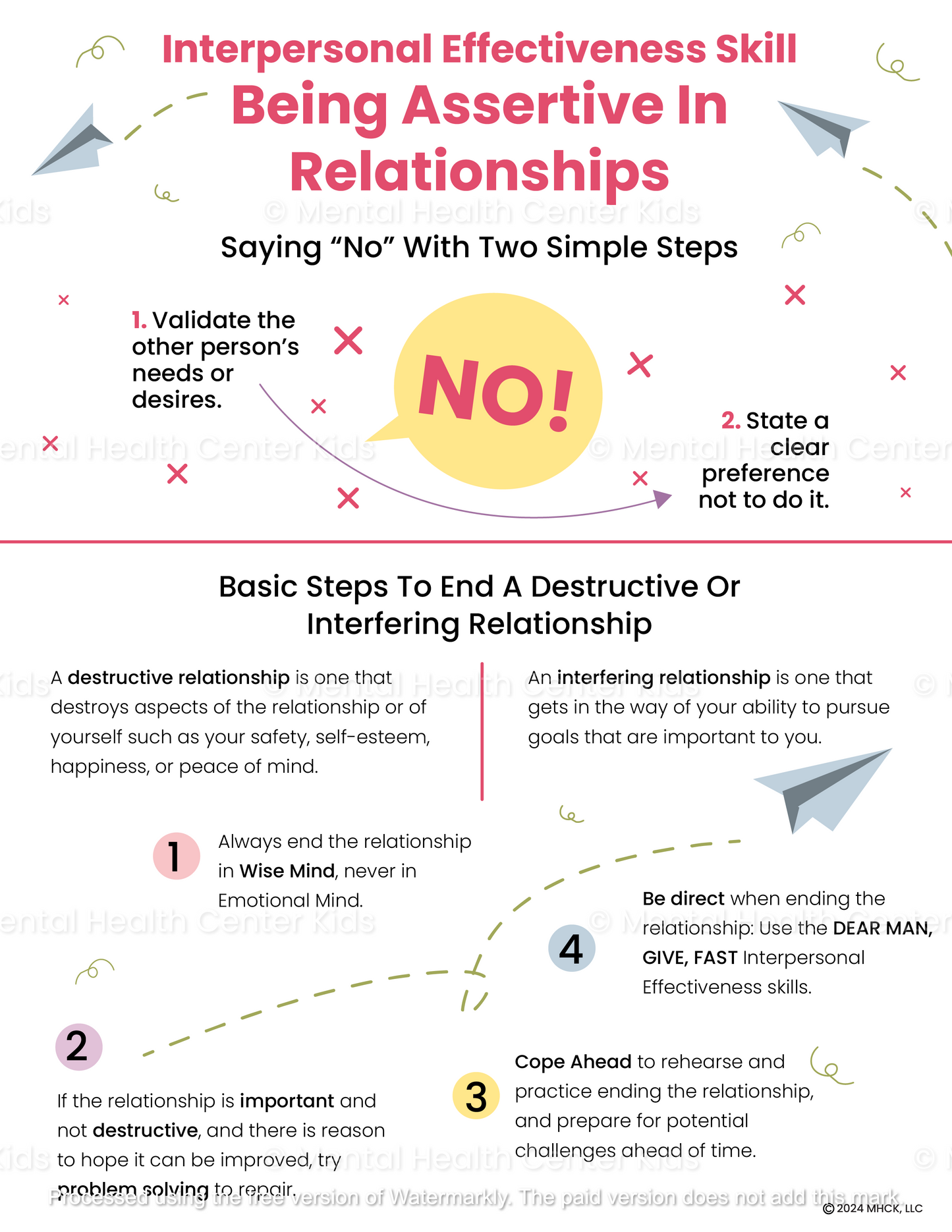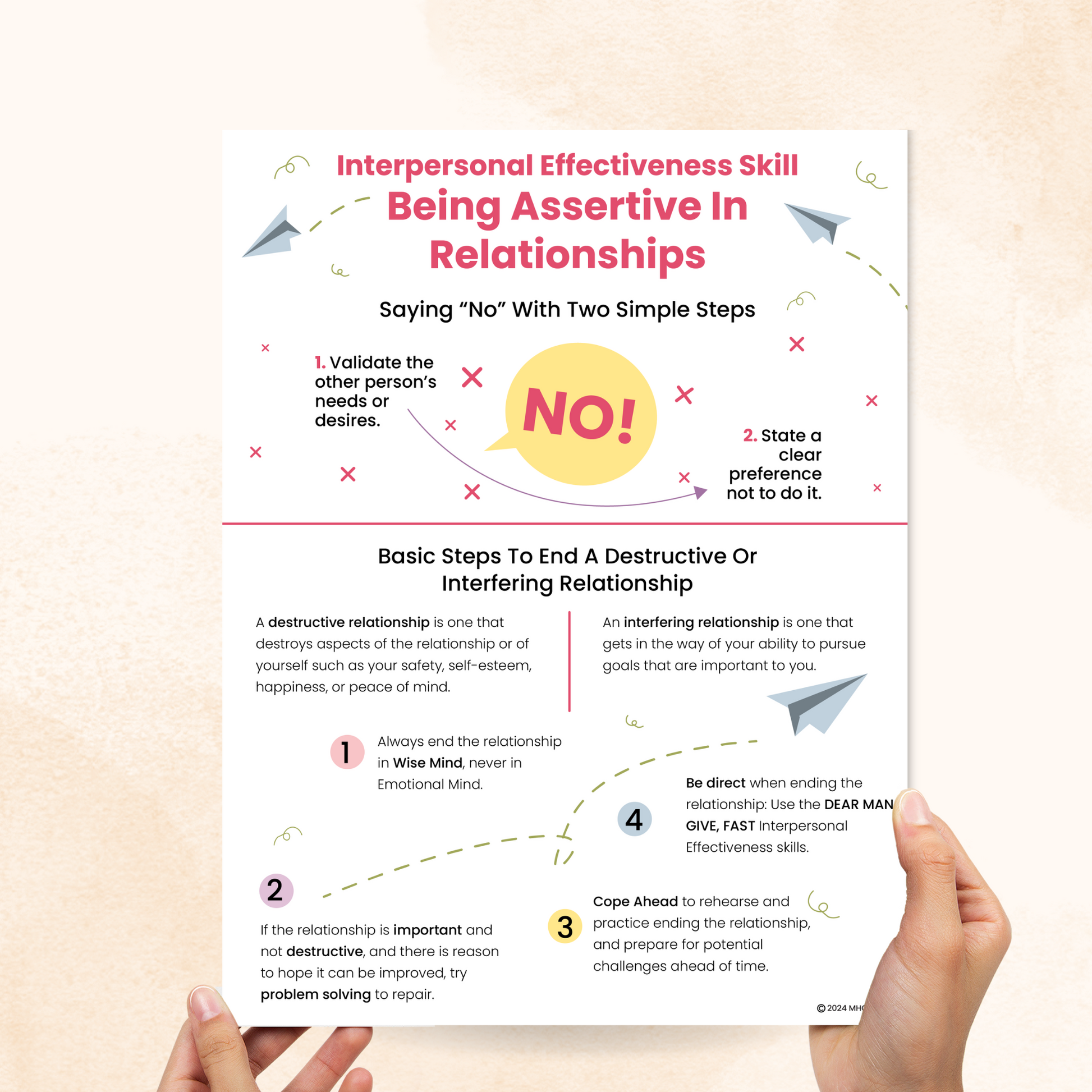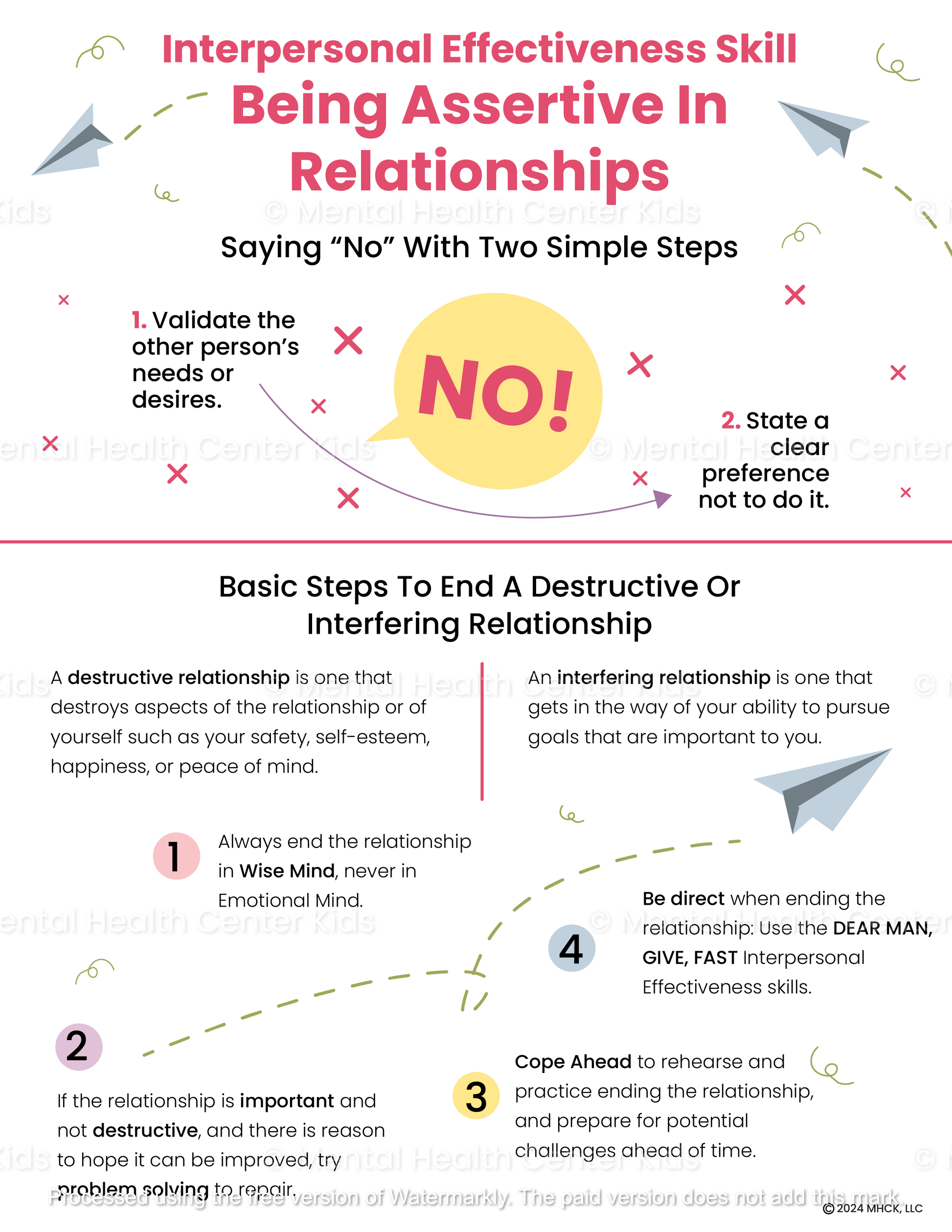DBT Assertiveness Skills Handout


Assertiveness is the ability to influence others in socially appropriate ways. Individuals who cannot emotionally regulate often struggle with assertiveness and interpersonal effectiveness skills. Clients who experience negative emotions like anxiety and shame have a hard time navigating social relationships, developing a sense of autonomy, and learning how to express and assert one’s independence while simultaneously asking for help when needed.
The DBT Assertiveness Skills Handout includes ways to say ‘no’ by validating the other person’s needs while stating a clear preference not to do it. It also shares basic steps for ending a relationship that negatively affects their safety and peace of mind or a relationship that hinders their goals.
Using this handout will help kids and teens learn basic concepts of setting boundaries in making requests or declining them. For example, if your child feels uncomfortable giving in to a classmate’s request, they can practice interpersonal effectiveness by acknowledging the request while also stating their priorities at the moment. Let them know that whenever they decline, they can still offer to help in other ways.
Add-on our DBT Interpersonal Effectiveness Skills handout for a quick reference to other interpersonal effectiveness skills that support being assertive in relationships.
*This item is an instant digital download. A link to download your files will be emailed to you once payment is confirmed.
Want more resources like this? Check out our full catalog of DBT worksheets and handouts.
References:
- Egolf, A., & Gold, A. L. (2023). Interpersonal effectiveness in action: The therapeutic milieu for DBT assertiveness skills practice. The Brown University Child and Adolescent Behavior Letter, 39(3), 1–4. https://doi.org/10.1002/cbl.30693
- Jameson, M. T. (2015). Assessing the interpersonal effectiveness of the DEAR-MAN skill using a social psychology paradigm. Western Michigan University.
- Van Dijk, S. (2013). DBT made simple: A step-by-step guide to Dialectical Behavior Therapy. New Harbinger Publications.
- Instant digital download
- File: PDF
- Size: 8.5" x 11"



